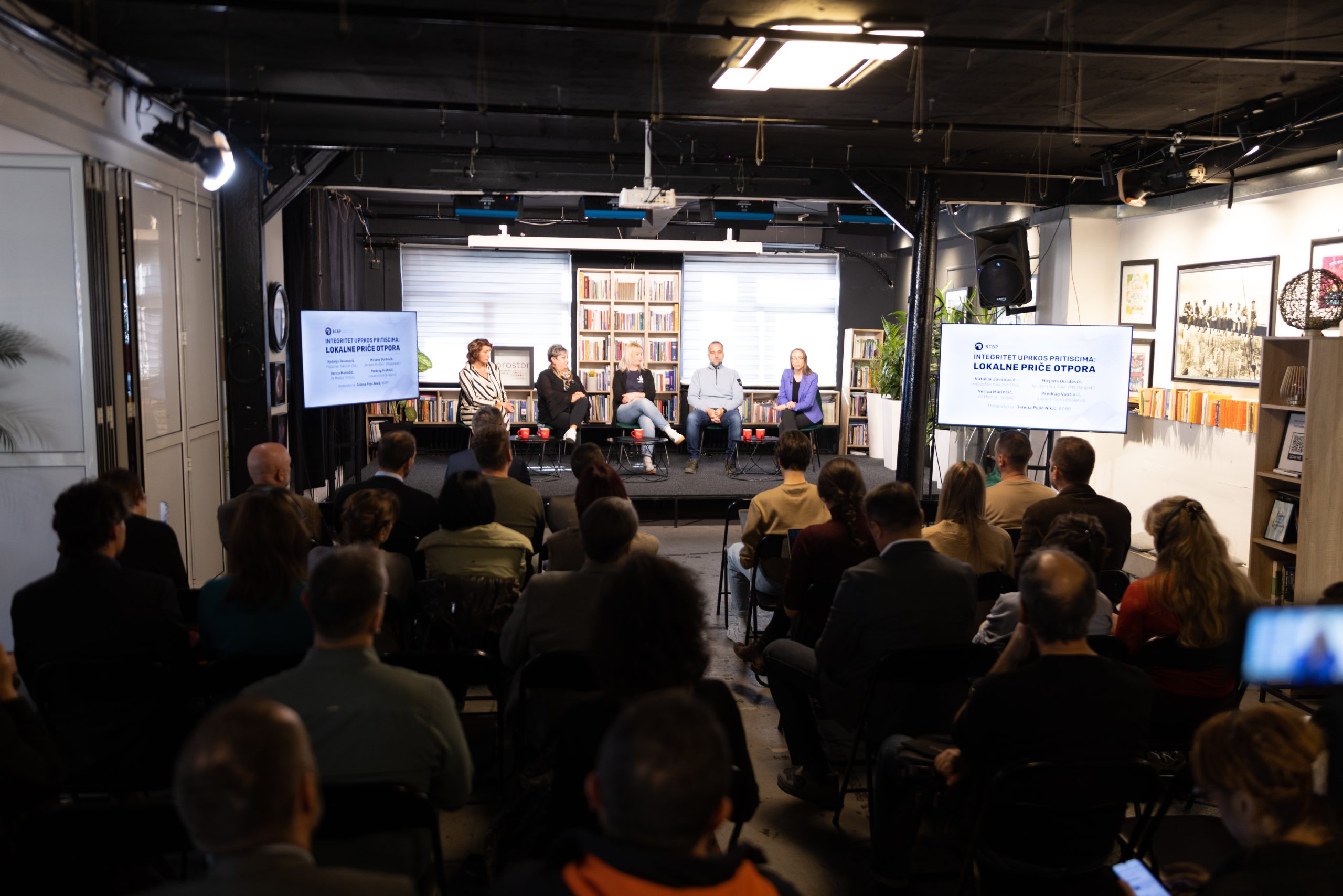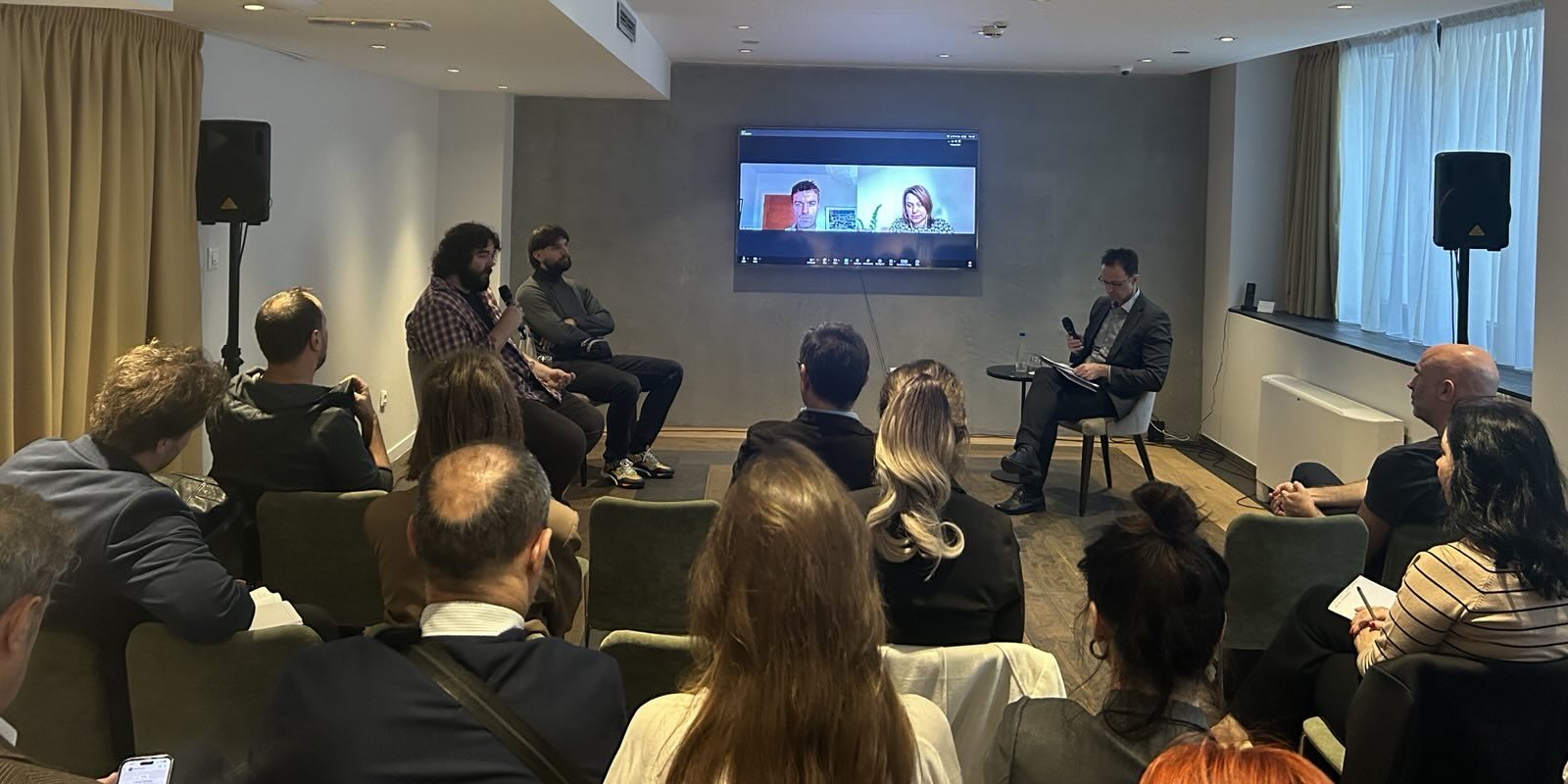SHARE
Press Release:
BCSP Statement on Mass Shootings and Growing Violence in Serbian Society
The citizens of Serbia are still shocked and appalled by the last week’s two mass shootings that took place in less than 48 hours, resulting in 17 dead and another 20 wounded.
The first mass shooting was committed by a minor in an elementary school in Belgrade, the first incident of its kind in the recent history of Serbia. The second mass shooting took place in Mladenovac, near Belgrade, and it was qualified as a terrorist act by the President and the interior minister.
In response to the gun violence, the President and the Government of Serbia have proposed various urgent measures. The first set of measures included increasing the number of police officers in schools and tightening gun laws: changes to the Firearms and Ammunition Law and the Criminal Code, six-month and annual medical, psychiatric, and psychological examinations, as well as a mandatory test for psychoactive substances, for persons who are allowed to possess weapons (including hunting weapons), revision of existing permits and a two-year moratorium on issuing new permits for keeping and carrying small firearms, a public call for a voluntary hand-in of illegal weapons, extraordinary control of shooting ranges, among other things. The president vowed to “completely disarm” Serbia with an ambitious plan that would significantly reduce, if not eliminate, the number of legal and illicit firearms.
Some of the controversial proposals that emerged but were swiftly rejected were the reintroduction of the death penalty, as well as the introduction of a state of emergency. Government officials have also pushed for Internet and social media censorship and easier entry into a person’s home without a court warrant. The latest and most controversial measure was the request of the Ministry of Interior to all schools in Serbia to make a list of children who are at “risk of committing violence, whether they are existing victims or perpetrators, or display antisocial behavior”.
Serious damage has been caused by leaking the information and details from the ongoing police investigation, while the president was criticized for disclosing medical records and other sensitive personal data about the minor. The sensational reporting by the state-funded media encouraged individuals to imitate the crimes that were committed, which further worsened the situation and traumatized society. In the days after the shootings, there were dozens of police interventions across Serbia to prevent similar events. In addition, numerous boys and girls have been detained for police questioning for sharing content on social networks that glorifies violence and perpetrators.
The most worrying was that the Public Prosecutors’ Office remained silent on serious violations of the Constitution and laws by the president, who interfered in the ongoing police investigation and disclosed personal data of the perpetrators, and by qualifying criminal acts influenced the work of the judiciary.
We think that the new measures proposed by the government represent a hasty, not well-thought-through, or evidence-based response to the tragic events that took place. Based on the initial responses which are almost exclusively repressive, it seems that the authoritarian Serbian Government and the President might seek to expand the powers and the role of police and intelligence services under the guise of promoting the safety of the Serbian citizens. The repressive measures, such as increasing the number of police officers in schools and expanding the jurisdiction of the police and intelligence services, will not solve the root causes of peer violence and other forms of violence in Serbian society as research from other countries suggests. Serbia is one of the leading European countries in terms of the number of police officers per capita, but this has not led to a greater sense of personal safety among citizens.
Considering all the above, we firmly believe that civil rights and freedoms should not be restricted for the sake of greater security, and therefore the Government should restrain from implementing radical policy decisions. We believe it is first necessary to provide a space and support to those affected to grieve and later, once the conditions are met and all relevant information is available, discuss policy changes to reduce the risks of similar events repeating in the future.
Overall, citizens were dissatisfied with the government’s reactions and measures. Citizens criticized the political leadership in Serbia for not showing empathy, humanity, solidarity, and accountability. Contrary to desired behaviour, the president, as well as the prime minister, used offensive language, an unacceptable tone, and vocabulary that was devoid of any compassion and desire to achieve catharsis after these violent events. Citizens were revolted by the fact that no officials appeared in person in front of the school in Belgrade after the shooting, except for the minister of health. Furthermore, it was difficult to understand why collective grief, i.e., a day of mourning, was postponed until Friday, two days after the first shooting. Above all, the public was enraged by the fact that political leadership used these two tragedies for political polarization and to attack dissenters.
On May 8, following last week’s mass shootings and in response to poor government performance, tens of thousands of citizens in Serbia took to the streets of Belgrade and other major cities to rally against violence. Protest demands include the resignations of key government officials and all members of the media regulatory body, as well as a ban on reality shows and tabloid media that routinely breach journalistic codes by promoting violence and spreading disinformation and fake news. Demonstrators also demanded an emergency parliamentary session and a debate about security. In the meantime, many parents demanded an increase in the number of psychologists and pedagogues in schools, then fundamental reforms of the education system, as well as greater investment in schools, not in the police.
Required actions
In the coming days and months, it is of great importance to deal with all the root causes of violence, to determine the responsibility of individuals and institutions that were able to prevent violent events, and most importantly – to end impunity for the instigators and perpetrators of violence in our society.
Local and international civil society and watchdog organisations should be vigilant and monitor the adoption and implementation of all government measures due to the potential restriction of civic rights and freedoms and further concentration of the executive’s power and state capture.
However, there is an urgent to provide psychological and other types of support to all the traumatized children, teachers, and employees of the Vladislav Ribnikar school, as well as the parents and families of those who died in the massacre near Mladenovac. It is profoundly important to restore a sense of safety to the survivors and all other children who are expected to return to school soon.
We appeal to Serbian officials not to use this and future tragedies for political polarization and attack dissenters.
Tags: bezbednost, saopštenje
RELATED

Date: 07.11.2025.
Author: Belgrade Centre for Security Policy
The Belgrade Centre for Security Policy (BCSP) has launched the Integrity Network initiative, bringing together respected individuals from various spheres of society—police officers, professors, journalists, lawyers, and activists—with the aim of monitoring, documenting, and raising public awareness about cases of state capture at the local level.

Date: 04.11.2025.
Author: Belgrade Centre for Security Policy
At the panel discussion “Freedoms Under Pressure: Civil Society and Digital Oversight in Serbia and Abroad”, organised by the Belgrade Centre for Security Policy (BCSP) on 31 October in Belgrade, speakers warned that digital surveillance and spyware use are rapidly becoming tools of political control in Serbia and across Europe, posing severe risks to human rights and democracy.

Date: 31.10.2025.
Author: Belgrade Centre for Security Policy
Political, media and economic influences of certain actors continue to strongly define the region’s security landscape, concluded participants of the workshop on security and stability impacts in the region, held on 23 October 2025, at the Civic Energy Center (CEC) in North Mitrovica.


